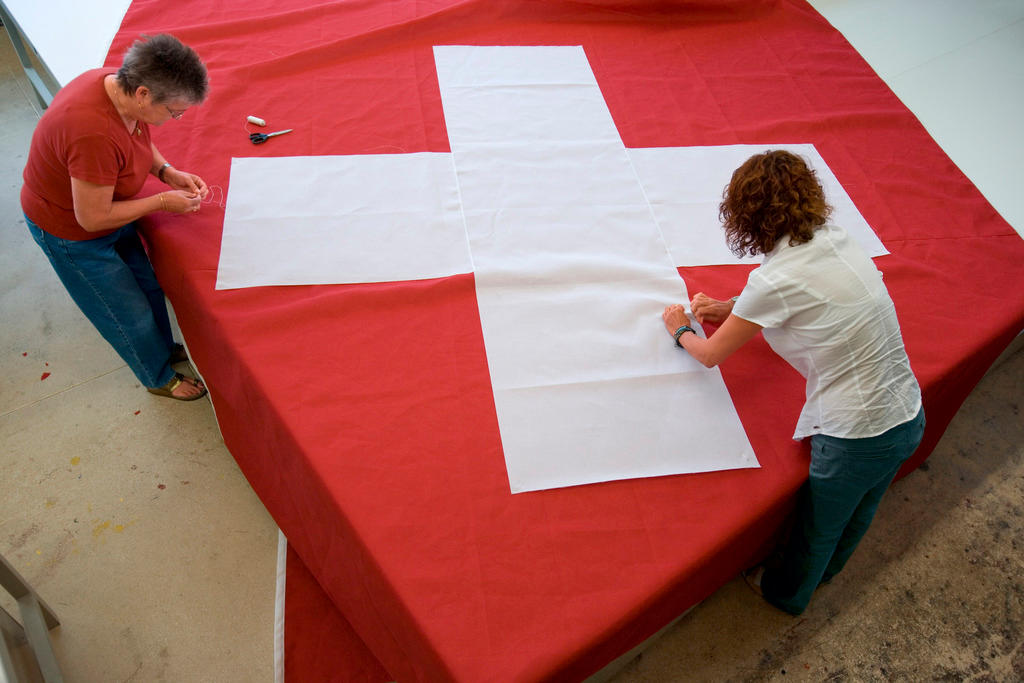
Rights group laments strict and inconsistent naturalisation process

The process to become Swiss has become too complex, preventing too many people from exercising their political rights, says the Swiss Observatory for Asylum and Foreigners Law. The group is calling for procedures to be simplified and made more consistent across cantons.
The naturalisation procedure in Switzerland is known as one of the most stringent in the world. In 2018 the government tightened the procedure, requiring applicants to have a C residence permit and demonstrate integration, including a written language test.
In a reportExternal link published on Tuesday, the observatory argues that this is excluding a large part of the population, many of whom were born in Switzerland or grew up in the country, from participating in democracy. About a quarter of the population residing in Switzerland don’t have a Swiss passport yet the naturalisation rate stands at around 2%, writes the NGO.
“There are still votes at community assemblies on naturalisation. In addition, the process is too complex and takes too long. It’s also too expensive,” says Noémi Weber, director of the observatory.
Different understandings
According to the State Secretariat for Migration, the number of people who became Swiss decreased significantly since changes to the Swiss citizenship law in 2018 from around 44,100 in 2018 to 25,600 in 2021.

More
7 questions on Becoming Swiss: ‘Where do I sign?’
The report includes various cases of citizenship applications being rejected on account of things like a single traffic violation or incorrectly guessing the name of the Alphorn, a traditional Swiss musical instrument.
“There are different understandings in the cantons and municipalities of what exactly local integration means, i.e. how connected someone has to be with their place of residence,” Barbara von Rütte, a legal expert from the University of Basel, told Swiss public television,External link SRF. In some areas, local citizens’ assemblies are still allowed to vote on naturalisation.
The observatory puts forward several recommendations including a simplified process for second-generation Swiss and the introduction of citizenship at birth. They also call for specialised bodies to undertake naturalisation interviews and an end to voting on naturalisation in local assemblies.

In compliance with the JTI standards
More: SWI swissinfo.ch certified by the Journalism Trust Initiative





























You can find an overview of ongoing debates with our journalists here . Please join us!
If you want to start a conversation about a topic raised in this article or want to report factual errors, email us at english@swissinfo.ch.